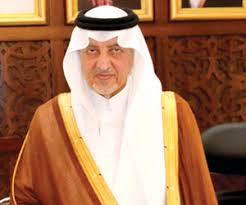Children below 10 may face Haj ban JEDDAH: 19 October 2014 Children below the age of 10 may be barred from performing Haj from next year. According to a report in a local newspaper, the subject came up for discussion during a recent meeting between the heads of pilgrim establishments and the Haj Ministry. No decision has yet been taken on the proposal, said Al-Watan newspaper, quoting sources. It is only a point of discussion at the moment, it said. The proposal stemmed from the fact that rising temperatures and a very high density of people at the holy sites during the annual pilgrimage put children at risk. In addition, there is a great possibility of children’s catching infections. Arab News saw hundreds of children during Haj this year. They were even brought by their parents to the Jamrat Bridge to perform the stoning of the devil ritual. This mandatory ritual generally takes place in the afternoon and is considered difficult and challenging even for the most able-bodied pilgrims. The Haj Ministry’s field teams discovered hundreds of children, almost two-thirds of them under the age of six, at the Grand Mosque in Makkah and other holy sites during this year’s Haj. The ministry estimated their number at between 5,000 and 7,000. Many of these children had fallen ill from the strain on their fragile bodies. The total number of Indian pilgrims below the age of 10 was 144, according to data available on the Indian Haj Mission’s website. In addition, there were 52 infants. In the past, infants from India needed no Haj visa and they were not counted in the quota. From this year onward, however, they are being treated as pilgrims. Diplomats from South Asian and Southeast Asian countries feel the proposal has merit. “We have a high demand and limited quota, and we would like that quota to be used by pilgrims who are fully aware of the religious obligations,” said one diplomat. “Certainly, Haj is not some kind of picnic; it is a grueling task and children should not be put in harm’s way,” he said. The men and women, who brought their children to Haj, told Arab News that they had no one to take care of them at home. Some of the expat pilgrims from Riyadh, Dammam and other Saudi cities said most of their neighbors and acquaintances go home during Haj holidays and there is no one for them to leave their children with. “Who would want to bring little ones to Haj?” said Sadiya Anam, a teacher at a school in Riyadh who performed Haj this year with her husband and two small children. “We had no option but to bring them and so we went the legal way and paid for their permits.” The other point of view, especially from Western pilgrims, is that unless they bring their children, the children will not be able to feel the grandeur and passion for Islam. “I brought children from London this year to let them see and feel for themselves the real beauty of Islam,” said Rafi Patel, a British citizen. “We may keep telling our children about how everyone is equal in Islam but it is only at Haj you see that in practice and you cannot imagine the impact this has on young and impressionable minds.” Tareq Angawi, head of the establishment for pilgrims from Turkey, Europe, America and Australia, was among those who backed the proposal. “The majority of families who came from abroad to perform Haj this year with their children were mostly British, but their numbers were limited and they had only brought their children because they had no one to take care of them back home,” Angawi was quoted as saying in Al-Watan newspaper. “Our group was very organized and we left children in big tents under the supervision of qualified assistants.” If approved, the proposal will be submitted to the Council of Senior Scholars for consideration. Focus on education to guide Arab youth: Prince Khaled Al-Faisal 
RIYADH: 19 October 2014 Education Minister Prince Khaled Al-Faisal stressed the role of the Arab Education Office in achieving educational awakening to protect youth from destructive ideologies in the Gulf Cooperation Council countries. “It is the responsibility of the Arab Education Office to take steps for educational awakening in the GCC countries in addition to protecting the young generation from the extraneous destructive ideologies that the enemies of the Arab and Islamic ummah are striving to inject in the youth in the region,” the prince, who will lead the Saudi delegation to the 23rd conference of the GCC education ministers said in a statement to the Saudi Press Agency on Saturday. The prince said the two-day conference to be opened in Kuwait on Tuesday is a fresh opportunity to move toward formulating strategies to tackle the issues facing educational developments in the region. The conference will also highlight the importance of strengthening the ties of belonging, loyalty and patriotism of the Gulf youth in addition to integrating plans and programs that serve the interests of teachers, students and their families. “Our countries in the region have no other way to achieve progress and catch up with the advanced countries except through education, cooperation and integration and coordination among ourselves and investing in our resources and potentials to secure the Gulf citizen and protect him from extremist ideologies,” the prince said. He also called on other participants in the conference to closely cooperate to achieve the educational strategy for 2015-20 which aims at achieving the educational aspirations of every GCC citizen and also to be capable of countering the challenges posed by the massive inflow of satellite and electronic media. The conference will discuss ways to encourage scientific research, adoption of advanced technology at the pre-university level of education, and cooperation with international, Arab and regional organizations for educational progress in the region in addition to finding ways to protect the young generation from destructive extraneous ideologies. |


